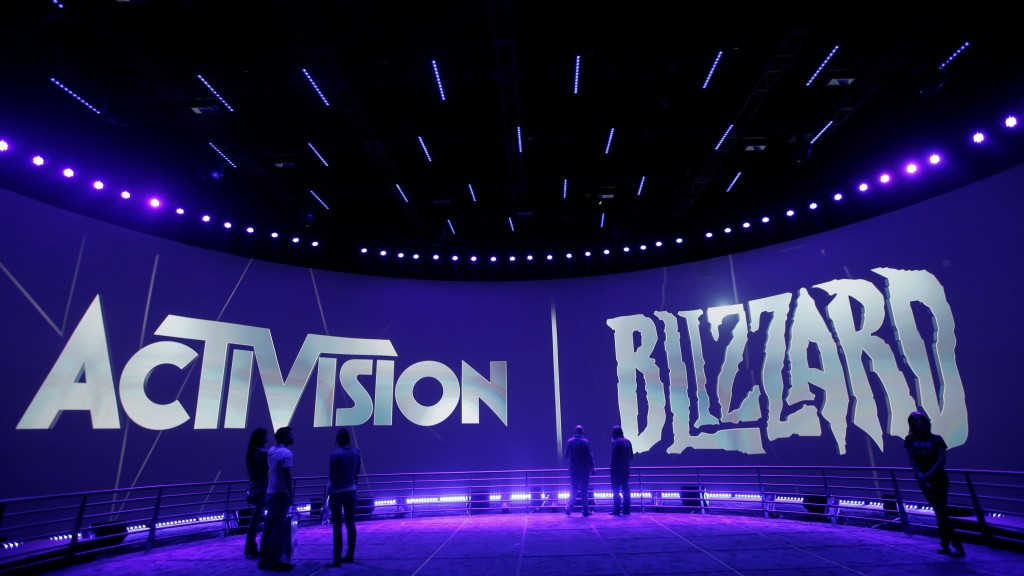Microsoft’s stalled $68.7 billion deal to buy video game company Activision Blizzard has hit a fresh hurdle in the United Kingdom, where the antitrust watchdog said Wednesday that it will stifle competition and hurt gamers.
Britain’s Competition and Markets Authority said its in-depth investigation found that the deal could strengthen Microsoft’s position in the growing cloud gaming market, “harming UK gamers who cannot afford expensive consoles.” In cloud gaming, players stream games on mobile phones and handheld devices they already own.
The blockbuster deal also could hurt British gamers by “weakening the important rivalry” between Microsoft’s Xbox console and Sony’s rival PlayStation machines, the watchdog said in a provisional report.
The all-cash deal, which is set to be the largest in the history of the tech industry, is facing opposition from Sony and pushback from regulators in the US and Europe because it would give Microsoft control of popular game franchises such as Call of Duty, World of Warcraft and Candy Crush.
“Our job is to make sure that UK gamers are not caught in the crossfire of global deals that, over time, could damage competition and result in higher prices, fewer choices, or less innovation,” Martin Coleman, chair of the independent expert panel that carried out the investigation, said in a press release. “We have provisionally found that this may be the case here.”
Microsoft’s deputy general counsel, Rima Alaily, said the company is “committed to offering effective and easily enforceable solutions that address the CMA’s concerns.”
Activision also said it hopes to “be able to help the CMA better understand our industry.” In an internal email to employees, CEO Bobby Kotick said Activision looks forward to continuing constructive talks with regulators in Britain and the European Union, where a separate investigation is underway.
“We are also confident that the law — and the facts — are on our side,” he said.
The UK antitrust investigation is now set to drag on for a few more months, dashing Microsoft’s hopes that a speedy favourable outcome could help it resolve a lawsuit brought by the US Federal Trade Commission.
But the fact that the UK didn’t move to prohibit the deal leaves an opening to Microsoft for further negotiation, said William Kovacic, a former FTC chairman
“The key thing in the decision is it invites further discussion about solutions,’ said Kovacic, now a law professor at George Washington University.
The British regulator said it will seek feedback, including possible options to address its competition concerns, from interested parties for its final report due April 26.
The FTC has sought to block the deal, arguing that the merger could violate antitrust laws by suppressing competitors to Xbox and its growing game subscription business.
Microsoft told the FTC’s administrative judge in January that it was working to resolve the UK investigation, as well as the EU probe, and hoped to bring back proposed remedies to US regulators. But emboldened by President Joe Biden to take a tougher look at big mergers, the Democratic-led commission has shown little appetite for talks.
“It helps the FTC enormously if another major competition authority in the world moves to ban the transaction and not accept a settlement,” Kovacic said.
The Activision Blizzard deal is one of several regulatory hassles for Microsoft in Europe amid expanded scrutiny for Big Tech companies on both sides of the Atlantic over worries that they have become too dominant.
One of the deal’s flashpoints is Activision’s hit video game Call of Duty. Sony has raised concerns about losing access to what it calls a “must-have” game title, while Microsoft has promised to make it available on all platforms.
“Our commitment to grant long-term 100 per cent equal access to Call of Duty to Sony, Nintendo, Steam and others preserves the deal’s benefits to gamers and developers and increases competition in the market,” Alaily said.
The UK watchdog said options to ease its concerns include blocking the deal, selling off part of Activision’s business or a so-called behavioural remedy such as an agreement to make popular games like Call of Duty available on other platforms, which it said would be less effective.
It’s not the first time the British watchdog has flexed its antitrust enforcement muscles over a Big Tech agreement. Last year, it blocked Facebook parent Meta’s acquisition of GIF-sharing platform Giphy over competition concerns, forcing the social media company to unwind the deal.





